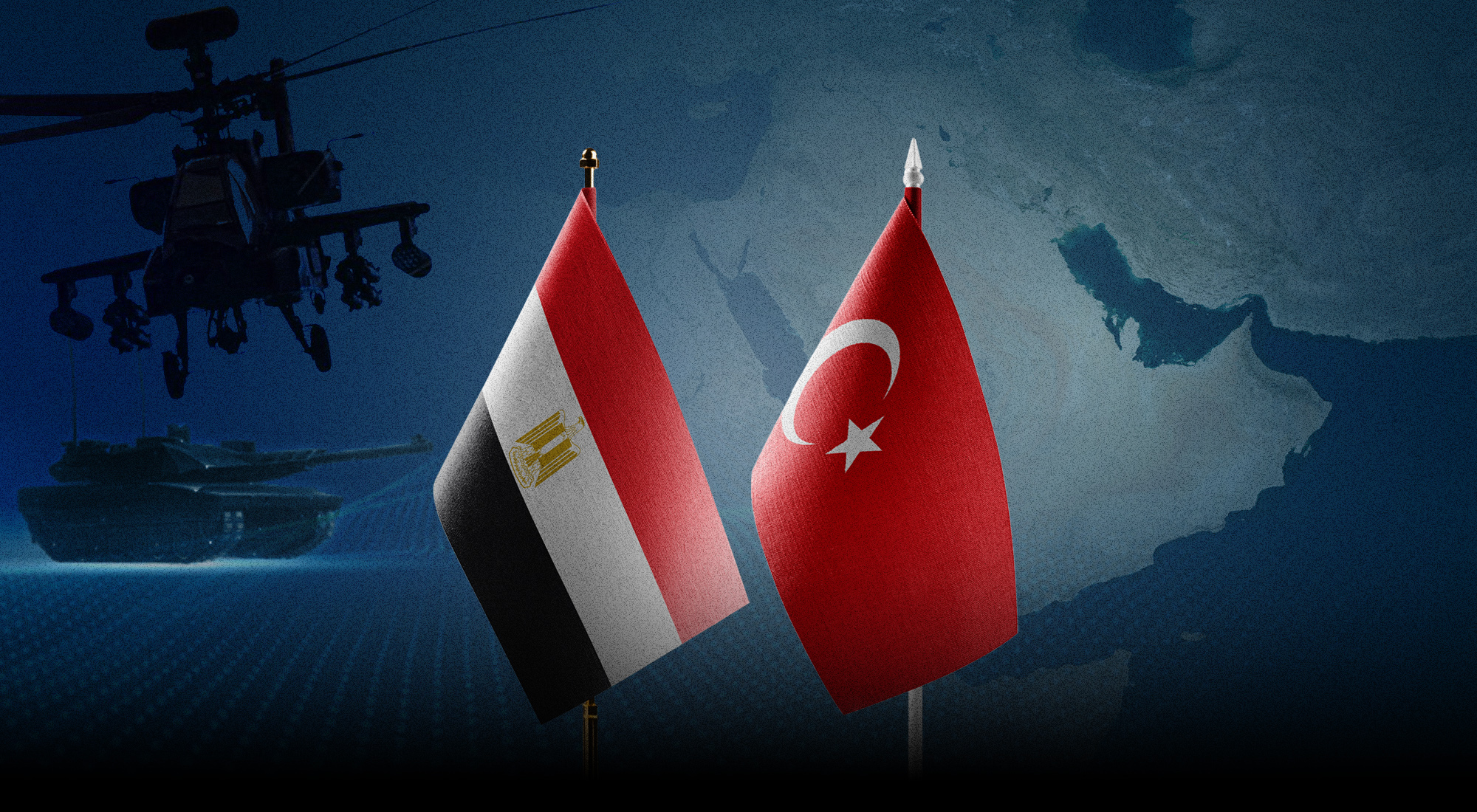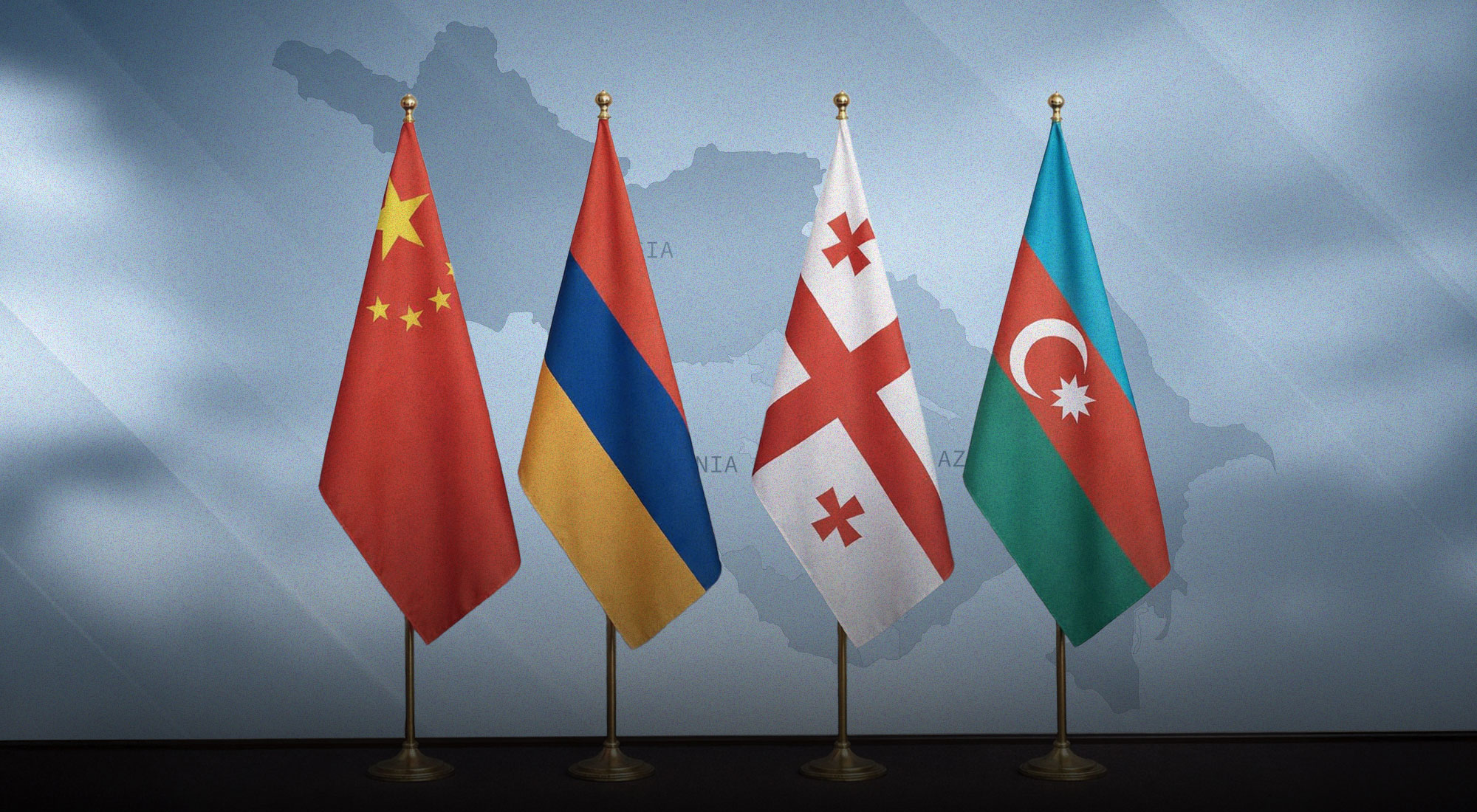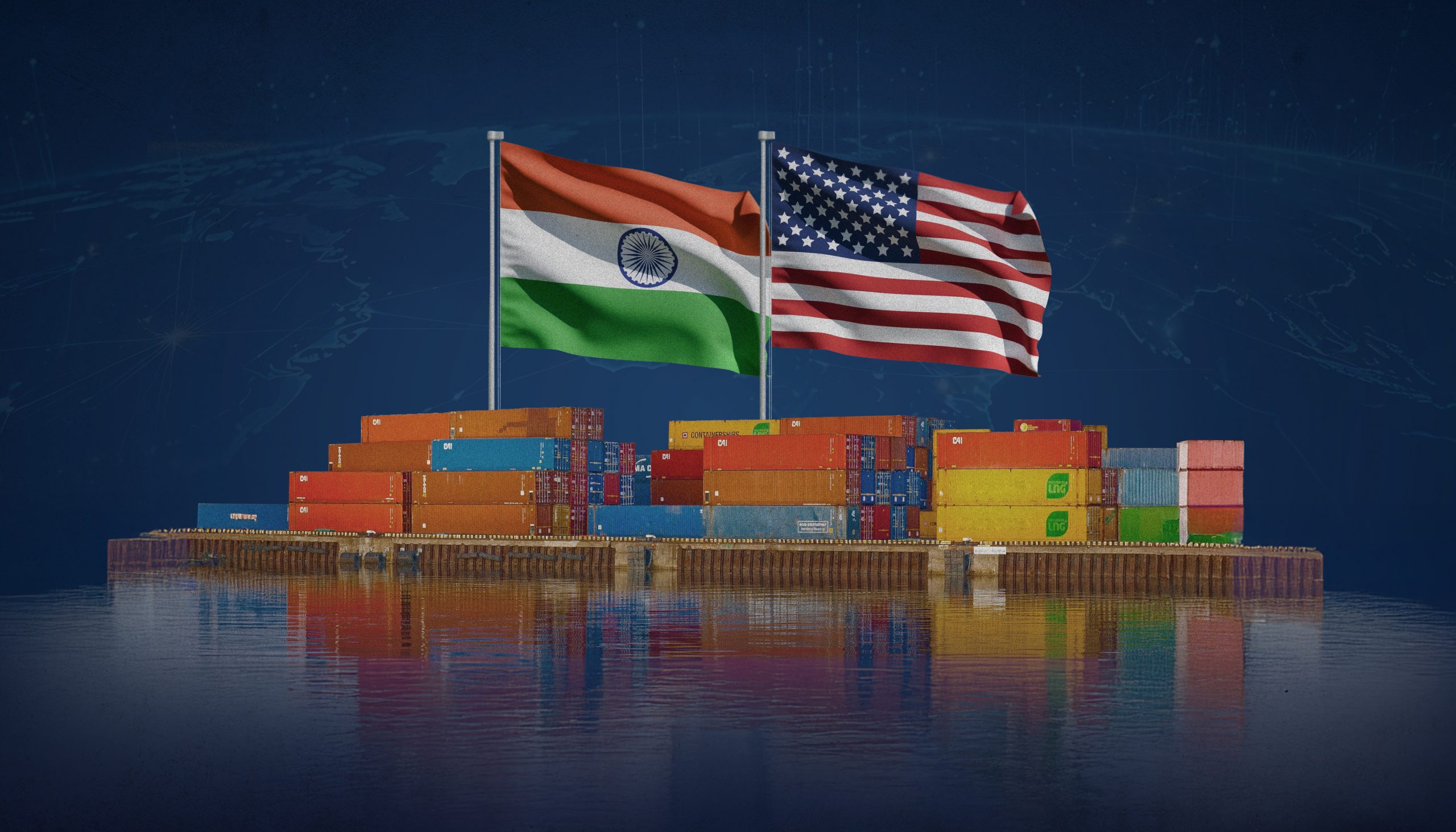The Middle East is undergoing a profound transformation in its security landscape as emerging middle powers increasingly assert themselves in defense and foreign policy. For decades, regional security was largely shaped by the dominance of external actors, particularly the United States, which sought to maintain stability and prevent the rise of a single regional hegemon. Since World War II, Washington has been the most powerful external player in the region, but U.S. retrenchment following the costly wars in Iraq and Afghanistan—combined with broader global shifts toward multipolarity—has reduced both its ability and willingness to dictate regional outcomes.[1] Strategic failures, weakening credibility, and the fragmentation of U.S. hegemony have further accelerated this trend.
Strategic multipolarity refers to a system in which multiple states—not just one (unipolarity) or two (bipolarity)—hold significant power over global or regional affairs.[2] After the Cold War, the United States enjoyed unipolar dominance, but today’s multipolar competition has diminished its singular influence. In the Middle East, this has opened space for regional actors to play a more decisive role in shaping security dynamics.
In this changing environment, middle powers such as Türkiye and Egypt are pursuing greater strategic autonomy by strengthening indigenous defense capabilities, diversifying partnerships, and adopting more proactive regional roles. Türkiye has expanded its defense industry, deployed military bases abroad, and conducted cross-border operations. Egypt, meanwhile, continues to leverage its demographic weight, control of the Suez Canal, and diplomatic influence in mediation efforts. Although neither state has achieved undisputed regional leadership—constraints such as internal divisions, shifting borders, and competing ideologies (Arab nationalism, sectarianism, Salafism, Kurdish nationalism) limit their reach—their growing independence reflects a broader trend of regional actors reshaping the Middle East’s defense architecture.
At the same time, smaller states like Qatar and Syria have demonstrated that tools such as media influence and diplomatic activism can amplify their roles, often beyond what their material capabilities would suggest.[3] The weakness of regional institutions, however, continues to hinder collective security mechanisms, leaving states to rely on their own military capacity and shifting alliances.
This insight, therefore, examines how strategic autonomy is being expressed in the Middle East through the cases of Türkiye and Egypt. By exploring their evolving security doctrines, defense-industrial strategies, and regional engagements, it highlights how middle powers are redefining the balance of power—shifting from reliance on external superpowers toward a more regionally driven security order.
Conceptual Framework
A middle power in a regional context is a state that is not a great or superpower, but is much stronger than a small state in terms of its economy, population, military, institutions, and diplomatic power. It can shape regional norms, promote multilateralism, lead peacekeeping or conflict management efforts, and act as a stabilizer or bridge builder in its region.[4] People in the area and beyond see these kinds of states as important players who can set the agenda and take the lead in economic, security, and institutional matters.[5] In terms of security and defense, strategic autonomy means that the European Union can protect itself without always needing help from other countries, like the United States. It means having the capabilities, technology, and political will to do things on its own when it needs to, including protecting its borders or taking part in global operations. The idea started in national military thought, mainly in France, and by 2013, it was part of the EU strategy. The 2016 EU Global Strategy made it a bigger aspect of the EU’s ability to act on its own when necessary and with partners when possible. It’s not about breaking ties with friends; it’s about being strong and ready to lead when the time comes.[6]
Türkiye and Egypt are some of the regional powers in the Middle East. Each one affects the region in its own way, depending on its capabilities and strategies. Türkiye is becoming a major regional force by combining its rising military-industrial capabilities with active diplomacy. It does this by building facilities in other countries and carrying out operations in Syria, Libya, and Iraq to protect its interests.[7] Egypt is still a significant country despite its economic difficulties because it has a huge army, a large population, and controls the Suez Canal. It regularly acts as a mediator in regional crises, especially between Israel and Palestine. This gives it a big but limited influence in determining the politics of the Middle East.[8]
Türkiye
Over the past twenty years, Türkiye has become one of the most active and influential players in the Middle East’s defense landscape. Located at the meeting point of Europe, Asia, and the Middle East, Ankara has been a key member of NATO for a long time, but recently it has been trying to be more independent. This is especially evident in Türkiye’s growing domestic defense industry, which has lessened its dependence on imported weapons and allowed the country to become a major exporter of arms. At the same time, Turkish leaders have taken a more confident and aggressive approach to foreign policy, including military actions in Syria, Libya, and Iraq, along with setting up new overseas military bases. These actions have occurred while Türkiye navigates ongoing disagreements with NATO, maintains a cautious relationship with Russia, and aims to become a power capable of conducting military operations abroad. Overall, these developments show how Ankara is changing its defense strategies and reshaping the security landscape in the region.
The rise of Türkiye’s defense sector has been led by its indigenous military industry. The Bayraktar TB2 drone, produced by Baykar, has been pivotal in conflicts in Syria, Libya, and Ukraine, earning Türkiye recognition as a drone power.[9] In 2024, Baykar reported that 90 percent of its $1.8 billion revenue came from exports, reflecting the high international demand for its systems. Türkiye’s defense and aerospace exports reached a record $7.2 billion that same year—a 25 percent increase from 2023.[10] Beyond drones, ambitious projects such as the TF-X fighter jet and the TCG Anadolu amphibious assault ship underscore Ankara’s determination to develop high-tech, self-sufficient capabilities.[11]
Türkiye has paired industrial growth with assertive military engagement. In Syria, it launched Operation Euphrates Shield in 2016 against ISIS and Kurdish groups, followed by Operation Olive Branch (2018) and Operation Peace Spring (2019).[12] In Libya, Türkiye was the only state to provide direct military support to the UN-backed Government of National Accord, using drones, armored vehicles, and advisors to halt General Khalifa Haftar’s advance on Tripoli.[13] In northern Iraq, Ankara continues to target the Kurdistan Workers’ Party (PKK) through airstrikes and ground incursions. Collectively, these actions highlight Türkiye’s willingness to project military power across multiple theaters.[14]
Despite fielding NATO’s second-largest army, Ankara’s independent decisions have strained its alliance ties. The most notable clash came in 2019 with its purchase of Russia’s S-400 missile defense system, which prompted U.S. sanctions and Türkiye’s suspension from the F-35 fighter jet program. At the same time, Türkiye maintains a complex relationship with Moscow—balancing cooperation in energy and defense with competition in Syria, support for Ukraine, and mediation in the Russia-Ukraine conflict.[15] [16] [17] [18]
Türkiye has also expanded its global presence through overseas bases and training missions. Its largest foreign base, Camp TURKSOM in Mogadishu, opened in 2017 and has since trained thousands of Somali troops, including specialized commando units.[19] By 2025, the deployment there had grown to around 800 personnel, including special forces and drone operators assisting in counterterrorism operations against al-Shabaab. Beyond Somalia, Türkiye maintains a permanent base in Qatar and forward deployments in Northern Cyprus, northern Iraq, and Syria. Together with a modern navy and advanced drone capabilities, these outposts enable Türkiye to project power across multiple regions.[20]
In sum, Türkiye has emerged as a robust military and industrial power, leveraging its defense industry, assertive operations, and strategic balancing between NATO and Russia. These developments position Ankara as a confident and influential actor, reshaping both the Middle Eastern security order and its own global profile.
Egypt
Egypt is often regarded as a traditional regional power due to its historical significance, large population, and strategic control of the Suez Canal. Yet, while Egypt holds symbolic and geographic importance, its actual influence in the Middle East and Africa is shaped by competing factors: its aspirations for regional leadership on one hand, and persistent internal challenges on the other. Cairo remains active in mediating conflicts in Gaza, safeguarding Red Sea security, and maintaining key military partnerships, but its ability to exert sustained influence is more limited compared to other regional actors.[21]
As the most populous Arab state with a central geographic position, Egypt has long been a pivotal player. However, structural economic weaknesses, a highly centralized political system, and heavy reliance on foreign financial assistance constrain Cairo’s capacity to translate ambition into durable power. Consequently, Egypt often projects symbolic leadership while facing practical limitations.[22] Still, its role as a mediator in the Israeli-Palestinian conflict remains crucial: successive Egyptian governments have acted as key negotiators in brokering ceasefires between Israel and Hamas, ensuring Cairo retains diplomatic relevance.[23]
Beyond Gaza, Egypt’s control of the Suez Canal ties its national security to the safety of Red Sea trade routes. Recent Houthi attacks on shipping have sharpened Egypt’s focus on naval security to protect this vital artery of global commerce.[24] At the same time, Egypt has sought to diversify its defense partnerships, moving beyond reliance on U.S. arms by purchasing Russian air defense systems and fighter jets, while also deepening military cooperation with France through the acquisition of Rafale aircraft.[25] These steps support Cairo’s modernization efforts but do not overcome the limits of its ability to project military power far beyond its immediate neighborhood.[26]
Overall, Egypt remains an indispensable regional power, anchored in its history, demography, and geography. Its influence stems less from overwhelming military might and more from its stabilizing role in crises, mediation efforts, and its ability to serve as a bridge between global powers and the Arab world. Despite economic constraints and limited reach, Egypt continues to function as a symbolic leader and a balancing force within the region.[27]
Conclusion
The cases of Türkiye and Egypt illustrate how regional actors are reshaping the security landscape in the Middle East as middle powers gain influence. Türkiye pursues this through a rapidly growing domestic defense industry, overseas military deployments, and assertive military operations, while Egypt relies on diplomacy, conflict mediation, and strategic partnerships. Together, their actions reflect a broader pattern in which middle powers no longer merely follow the lead of global superpowers but act independently to shape regional events.
This shift signals a transformation in regional dynamics: Middle Eastern states are increasingly taking responsibility for their own security, coordination, and conflict management rather than relying primarily on external powers such as the United States. In an era of multipolarity, the region is likely to experience a more complex and diverse security environment, with overlapping spheres of influence rather than a single dominant actor.
Looking ahead, regional countries are expected to exercise greater autonomy in decision-making and continue developing new norms and practices in defense and diplomacy. Middle powers like Türkiye and Egypt are poised to play leading roles in defining the rules of regional security, signaling a fundamental evolution in how the Middle East manages its strategic environment.
[1] Tonali Windslor, “What Is the Difference between Unipolarity, Bipolarity, and Multipolarity?,” Isolation Moderation, November 22, 2020, https://isolationmoderation.com/en-ae/blogs/news/what-is-the-difference-between-unipolarity-bipolarity-and-multipolarity.
[2] Gregory Gause III, “Hegemony, Unipolarity and American Failure in the Middle East,” Project on Middle East Political Science, (n.d.), https://pomeps.org/hegemony-unipolarity-and-american-failure-in-the-middle-east.
[3] Meliha Benli Altunisik, “Regional Powers in a Transforming Middle East,” IE Med., November 10, 2014. https://www.iemed.org/publication/regional-powers-in-a-transforming-middle-east/.
[4] Willem Oosterveld and Bianca Torossian, “A Balancing Act: The Role of Middle Powers in Contemporary Diplomacy | Strategic Monitor 2018-2019,” Clingendael (n.d.), https://www.clingendael.org/pub/2018/strategic-monitor-2018-2019/a-balancing-act/.
[5] Meltem Müftüler Baç, “Middle Power | Definition, Role & Impact,” Encyclopedia Britannica, October 13, 2015, https://www.britannica.com/topic/middle-power?.
[6] Charlotte Beaucillon, “Strategic Autonomy: A New Identity for the EU as a Global Actor,” European Papers, 2016, https://www.europeanpapers.eu/europeanforum/strategic-autonomy-new-identity-eu-global-actor.
[7] Sinem Adar, Hürcan Aslı Aksoy, Salim Çevik, Daria Isachenko et al., “Visualising Turkey’s Foreign Policy Activism,” Centre for Applied Turkey Studies, May 30, 2025, https://www.cats-network.eu/visualisations/visualising-turkeys-foreign-policy-activism.
[8] Ewan Stein, “Egyptian Responses to Turkey’s MENA Policy from the Arab Spring to the Gaza Crisis: Sub-Imperialisms and Regional Order,” International Politics (2025), https://doi.org/10.1057/s41311-025-00699-5.
[9] Jens Bastian, “Turkey: An Emerging Global Arms Exporter,” SWP Comment, February 2024, https://www.swp-berlin.org/publications/products/comments/2024C06_Turkey_ArmsExporter.pdf.
[10] “Türkiye’s Defense Exports Snag New Record of $7.2B in 2024,” Daily Sabah, January 5, 2025, https://www.dailysabah.com/business/defense/turkiyes-defense-exports-snag-new-record-of-72b-in-2024.
[11] “Turkey Launches Its First Amphibious Assault Ship, Eyes Drone Capabilities,” Reuters, April 10, 2023, https://www.reuters.com/world/middle-east/turkey-launches-its-first-aircraft-carrier-eyes-drone-capabilities-2023-04-10/.
[12] Branislav Stanicek, “Turkey’s Military Operation in Syria and Its Impact on Relations with the EU,” European Parliament (n.d.), https://www.europarl.europa.eu/EPRS/EPRS-Briefing-642284-Turkeys-military-operation-Syria-FINAL.pdf.
[13] Ali Bin Musa, “Rivalry and Cooperation: Russia and Türkiye Navigate Libya’s Geopolitical Labyrinth,” Middle East Council on Global Affairs. May 11, 2025, https://mecouncil.org/publication/rivalry-and-cooperation-russia-and-turkiye-navigate-libyas-geopolitical-labyrinth/.
[14]“Turkey’s Military Operations in Iraq and Syria,” Reuters, November 21, 2022, https://www.reuters.com/world/middle-east/turkeys-military-operations-iraq-syria-2022-11-21/.
[15] Alan Makovsky, “Turkey: Managing an Unfriendly Ally,” Brookings, October 30, 2024, https://www.brookings.edu/articles/turkey-managing-an-unfriendly-ally/.
[16] Clayton Thomas and Jim Zanotti, “Turkey (Türkiye): Major Issues and U.S. Relations,” Congress.gov. September 26, 2024, https://www.congress.gov/crs-product/R44000.
[17] “Why the United States Should Discuss Mutual Nuclear Vulnerability with China,” Carnegie Endowment for International Peace. May 26, 2022. https://carnegieendowment.org/programs/nuclear-policy/proliferation-news/why-the-united-states-should-discuss-mutual-nuclear-vulnerability-with-china?lang=en.
[18] Marc Pierini, “‘Russia Could Push Turkey into Lasting Political and Military Antagonism with the Rest of NATO,’” Le Monde, April 22, 2024, https://www.lemonde.fr/en/opinion/article/2024/04/22/russia-could-push-turkey-into-lasting-political-and-military-antagonism-with-the-rest-of-nato_6669139_23.html.
[19] Abdirahman Hussein and Orhan Coskun, “Turkey Opens Military Base in Mogadishu to Train Somali Soldiers,” Reuters, October 1, 2017, https://www.reuters.com/article/world/turkey-opens-military-base-in-mogadishu-to-train-somali-soldiers-idUSKCN1C50J9/.
[20] Kiran Baez, “Turkey Signed Two Major Deals with Somalia. Will It Be Able to Implement Them?,” Atlantic Council. June 18, 2024, https://www.atlanticcouncil.org/blogs/turkeysource/turkey-signed-two-major-deals-with-somalia-will-it-be-able-to-implement-them/?utm_source=chatgpt.com.
[21] Hafsa Halawa, “Burning Ambition: Egypt’s Return to Regional Leadership and How Europe Should Respond,” European Council on Foreign Relations, October 11, 2021, https://ecfr.eu/publication/burning-ambition-egypts-return-to-regional-leadership-and-how-europe-should-respond/.
[22] Ibid.
[23] Victoria Eastwood and Samy Magdy, “AP Exclusive: Egypt’s Chief Diplomat Urges Israel and Hamas to Enact Ceasefire ‘without Any Delay,’” AP News, January 16, 2025, https://apnews.com/article/ceasefire-egypt-gaza-hamas-israel-eu-war-3e434d5612f62ee5b188acf74f65f1fb.
[24]“Egypt’s Sisi, Trump Discuss Regional Mediation Efforts in Phone Call,” Reuters, April 1, 2025, https://www.reuters.com/world/egypts-sisi-trump-discuss-regional-mediation-efforts-phone-call-2025-04-01/.
[25] Noah Rayman, “The Real Reason Egypt Is Buying Fighter Jets from France,” TIME, February 14, 2015, https://time.com/3710118/egypt-rafale-fighter-jet-france/.
[26] Hafsa Halawa, “Burning Ambition: Egypt’s Return to Regional Leadership and How Europe Should Respond.”
[27] “Egypt: Background and U.S. Relations,” Congress.gov. (n.d.), https://www.congress.gov/crs-product/RL33003.








